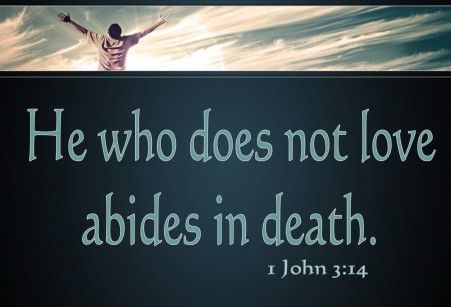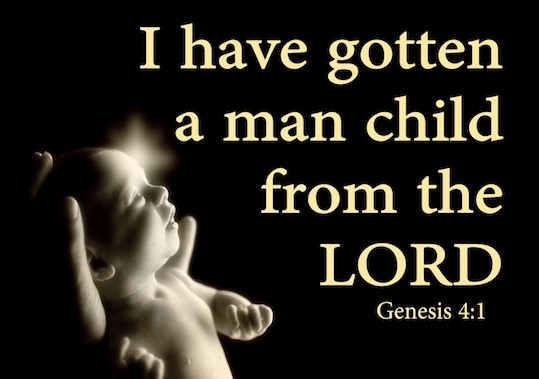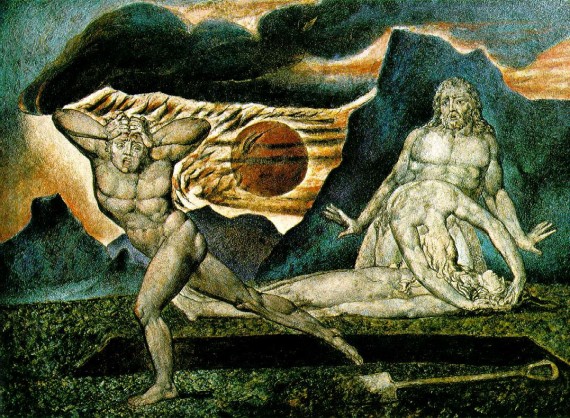In 1 John 3:14, we read this:
We know that we have passed from death to life, because we love the brethren. He who does not love his brother abides in death.
 Is John saying that in order to receive eternal life, you need to love other Christians? Lots of other pastors and Bible scholars teach 1 John 3:14 in just this way, but is that really what John meant?
Is John saying that in order to receive eternal life, you need to love other Christians? Lots of other pastors and Bible scholars teach 1 John 3:14 in just this way, but is that really what John meant?
If so, then how can eternal life be received “by grace alone through faith alone in Jesus Christ alone”?
If eternal life is also earned by making sure we love other people, then eternal life is partially earned by good works, and is no longer by grace alone through faith alone.
So what is the meaning of 1 John 3:14?
The Theme of Fellowship in 1 John
To understand 1 John 3:14, it is first of all important to understand why 1 John was written.
The first letter of John is written so that the readers may live a life of fellowship with God and with one another (1 John 1:3).

With this as his primary theme, John provides instructions throughout his letter about how to have fellowship with God and with one another.
Note that fellowship is not the same thing as a relationship (see Fellowship). You can be related to someone while not having any fellowship with them. Children are often estranged from parents, so that while they are still related, they never gather together to enjoy each other’s company.
The same thing can happen to those who are related to God and to one another through Jesus Christ. We can be spiritually related while failing to be in daily fellowship.
John writes his letter to make sure that those who read it maintain their fellowship with God and with one another.
With this theme in mind, John paints many contrasts in his letter, comparing the life out of fellowship with darkness and death, while describing life within fellowship as light and life (cf. 1 John 1:5-7; 2:8-10; 3:14-16; 5:11-13).
And while eternal life is mentioned in this letter (cf. 1 John 2:25; 3:15; 5:11), this is not because John is equating eternal life and fellowship, but because ongoing fellowship with God and one another is based on the unchanging fact of eternal life from God.
While you can have relationship without fellowship, you cannot truly have fellowship without relationship.
John knows his readers have the relationship with God and writes so that they might maintain their fellowship as well (cf. 1 John 2:12-14). To live out of fellowship is not to lose our eternal life, but to live away from light and love and in the realm of death and darkness.
1 John 3:14 is about fellowship with God and others
So when John writes in 1 John 3:14 that we know we have passed from death to life because we love our brethren, he is not talking about how we know we have eternal life, but how we know we are in fellowship with God and one another.
One way to know you are in fellowship with God is because you are in fellowship with other believers, that is, because you love one another.
The opposite is also true. Anyone who does not love his brother “abides in death.” The word “abide” means “remain, or to continually dwell” (see Abide), and so the one who hates his brother is not living in the fellowship that God wants and desires for us, but is instead continuing to live in the realm of death, from which Jesus rescued and delivered us.
1 John 3:14 is about escaping the realm of death in which we live, and experiencing true life
As seen in my studies on the word “Death,” the world is controlled by death. We engage in rivalry and accusation which leads to the death of others, and we kill others in the attempt to avoid our own death. We also believe that the death of our enemies will bring peace, but violence against our enemies only results in an increase of their violence against us.

Jesus came to rescue and deliver us from this never-ending cycle of escalating violence, but if we Christians continue to hate our brothers and live in rivalry against them, we have not escaped the control of death but continue to dwell in it and be ruled by it.
So, John invites his readers to love one another instead of hate, and in this way, escape the realm of death.
The context provides further evidence that physical violence against other human beings is what John has in mind when he writes about death. He is not talking about spiritual death or the loss of eternal life, or even that the one who hates his brother proves that he really wasn’t a Christian in the first place.
The context has nothing to do with such ideas.
Instead, John directs the reader to the first death in Scripture, when Cain murdered his brother Abel (1 John 3:12). John also goes on to describe death as “murder” (1 John 3:15).
While John does go on to say that no murderer has eternal life abiding in him (1 John 3:15), he does not mean that no murderer can be a Christian, or that no Christian can murder someone.
He means that when a Christian hates someone or murders someone (for this does happen), it is because they are continuing to follow the ways of this world, rather than the ways of God (see the discussion of 1 John 3:14-15 under Abide).
The meaning of 1 John 3:14
1 John 3:14 is not about gaining or keeping eternal life, or proving that you have it. Instead, it is about living in the way of life that God wants for His people, rather than the way of death that this world is accustomed to.
So, do you want to know that you are living in God’s way of life rather than the world’s way of death? You can know this if you have true and genuine love for other people.
Does this help you understand 1 John 3:14? Please ask any follow-up questions you might have in the comment section below.
 Understanding the Gospel requires us to properly understand the key words and terms of the Gospel. Take my course, "The Gospel Dictionary" to learn about the 52 key words of the Gospel, and hundreds of Bible passages that use these words.
Understanding the Gospel requires us to properly understand the key words and terms of the Gospel. Take my course, "The Gospel Dictionary" to learn about the 52 key words of the Gospel, and hundreds of Bible passages that use these words.
This course costs $297, but when you join the Discipleship group, you can to take the entire course for free.




 After Nineveh experiences a city-wide revival in response to his preaching, Jonah becomes angry at God in Jonah 4:1.
After Nineveh experiences a city-wide revival in response to his preaching, Jonah becomes angry at God in Jonah 4:1.
![[#61] The New Creation in the Gospel of John](https://redeeminggod.com/wp-content/uploads/2016/12/gospel-of-john-podcast-150x150.jpg)
 I have said numerous times before that Genesis forms the foundation for the entire Bible. Today we are going to jump forward into the New Testament and take a brief glimpse at how the Gospel of John pulls themes and ideas from Genesis 1–3, and also how the first Epistle of John pulls themes from Genesis 4.
I have said numerous times before that Genesis forms the foundation for the entire Bible. Today we are going to jump forward into the New Testament and take a brief glimpse at how the Gospel of John pulls themes and ideas from Genesis 1–3, and also how the first Epistle of John pulls themes from Genesis 4.![[#60] Genesis 4 Overview – Sin and Civilization](https://redeeminggod.com/wp-content/uploads/2016/12/Genesis-4-1-Eve-Conceived-And-Gave-Birth-To-Cain-black-copy-150x150.jpg)




 For all the mentions of human violence, references to divine violence appear almost twice as often.
For all the mentions of human violence, references to divine violence appear almost twice as often. Though innocent of any wrongdoing, God, in Jesus, let us blame Him for every wrongdoing.
Though innocent of any wrongdoing, God, in Jesus, let us blame Him for every wrongdoing.